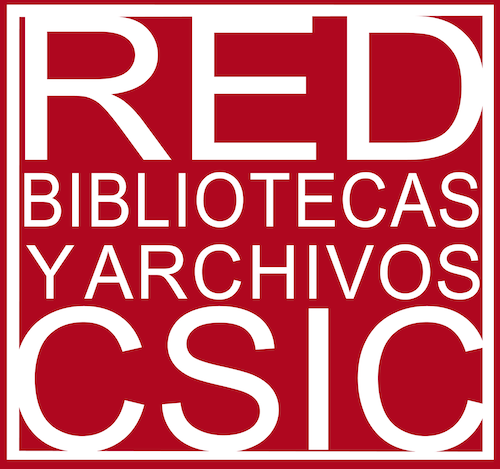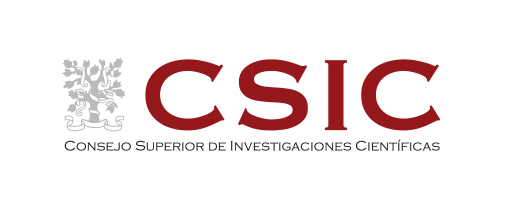
 Researchers at over 100 institutes in Spain now benefit from fee-free Open Access publishing in leading biological science journals
Researchers at over 100 institutes in Spain now benefit from fee-free Open Access publishing in leading biological science journals
10 August 2021
The Company of Biologists is pleased to announce a new Read & Publish agreement with the Spanish National Research Council.
This cost-neutral agreement, which runs until 31 December 2023, enables researchers at more than 100 Consejo Superior de Investigaciones Científicas (CSIC) institutes to publish an uncapped number of Open Access research articles in Development, Journal of Cell Science and Journal of Experimental Biology at no cost to them. They will also benefit from free and unlimited access to the journals and their archives dating back to 1853.
Agnès Ponsati, Director of CSIC’s Unit of Information Resources for Research (URICI), said:
As the largest public institution dedicated to research in Spain and the third largest in Europe, the Spanish National Research Council is firmly committed to driving Open Science by promoting open access to CSIC’s research results.
The Read & Publish agreement with The Company of Biologists is a new step forward in our strategy of promoting Open Access as a key pillar for open science at CSIC. We are pleased because it is a real cost-neutral agreement, thus fulfilling one of the basic principles of so-called transformative agreements. The agreement adds to the more than 25 open access agreements that CSIC has signed with a wide range of scientific publishers as part of its Open Access Publishing Support Program, with the aim of fostering a diverse and plural Open Access publishing ecosystem.
Richard Blount, Regional Sales Manager – Europe at The Company of Biologists, said:
Our new Read & Publish agreement is an important milestone in our long-standing partnership with CSIC. Under previous agreements, 15 CSIC institutes in Spain had ‘read’ access to our subscription journals. We are delighted that our new agreement extends access to researchers at over 100 CSIC institutes and that uncapped, fee-free Open Access publishing is available for the first time too.
Claire Moulton, Publisher at The Company of Biologists, said:
As a not-for-profit publisher dedicated to supporting the biological community worldwide, we have been committed to Open Access for over 16 years. Our journals were the first in the world to be awarded Transformative Journal status by Plan S and over 375 institutions in more than 25 countries are now participating in our Read & Publish initiative. We are very excited about our new Read & Publish agreement with CSIC and are keen to work together to promote the growth of Open Access publishing in the biological and biomedical sciences in Spain.
See list of eligible CSIC Institutes and Centres
About the Spanish National Research Council (CSIC)
Part of the Spanish Ministry of Science and Innovation, CSIC (Consejo Superior de Investigaciones Científicas) is the largest public institution dedicated to research in Spain and the third largest in Europe. Its main objective is to develop and promote research that will help bring about scientific and technological progress, and for this purpose it collaborates with a wide network of Spanish and foreign entities.
CSIC consists of over 100 institutes (its own and also joint institutes in collaboration with 43 public universities) and has more than 11,000 staff, distributed across institutes and central services. 5,300 staff are directly involved with research, including permanent, hired researchers, fellows and in-training researchers.
CSIC researchers contribute more than 12,000 scientific publications per year, with nearly 70% of them in top impact factor quartile journals.
About CSIC’s Unit of Information Resources for Research (URICI)
URICI is a central support unit for research teams within the CSIC. It is responsible for the strategic planning, development and operation of its libraries and the digital infrastructures necessary to provide its institutes with scientific information resources for the development of excellent science. It also collaborates in CSIC’s Open Science strategy, specifically through the promotion of its policy of Open Access to research results, via the green or gold route.
About The Company of Biologists
The Company of Biologists is a not-for-profit publishing organisation dedicated to supporting and inspiring the biological community. We partner with libraries and library consortia to enable biologists worldwide to access our leading peer-reviewed hybrid journals: Development, Journal of Cell Science and Journal of Experimental Biology.
We have been committed to Open Access (OA) for over 16 years. We publish two fully OA journals – Disease Models & Mechanisms and Biology Open. Our cost-neutral Read & Publish OA initiative is the latest step in our OA journey and over 375 institutions in more than 25 countries, six library consortia and one international library organisation are now participating.
Eligible CSIC Institutes and Centres
- Centro Andaluz de Biologia del Desarrollo (CABD)
- Centro Andaluz de Biologia Molecular y Medicina Regenerativa (CABIMER)
- Centro de Astrobiologia (CAB)
- Centro de Automatica y Robotica (CAR)
- Centro de Biología Molecular Severo Ochoa (CBM)
- Centro de Ciencias Humanas y Sociales (CCHS)
- Centro de Edafología y Biología Aplicada del Segura (CEBAS)
- Centro de Estudios Avanzados de Blanes (CEAB)
- Centro de Fisica de Materiales (CFM)
- Centro de Física Miguel A. Catalan (CFMAC)
- Centro de Física Teórica y Matemáticas (CFTMAT)
- Centro de Investigación Agrigenómica (CRAG)
- Centro de Investigacion Cardiovascular (CIC)
- Centro de Investigacion de Nanomateriales y Nanotecnologia (CINN)
- Centro de Investigación Ecológica y Aplicaciones Forestales (CREAF)
- Centro de Investigacion en Nanociencia y Nanotecnologia (CIN2)
- Centro de Investigación y Desarrollo Pascual Villa (CID)
- Centro de Investigaciones Biológicas (CIB)
- Centro de Investigaciones Científicas Isla de la Cartuja (CICIC)
- Centro de Investigaciones Sobre desertificacion (CIDE)
- Centro de Quimica Organica Lora Tamayo (CENQUIOR)
- Centro de Quimica y Materiales de Aragon (CEQMA)
- Centro Mediterraneo de Investigaciones Marinas y Ambientales (CMIMA)
- Centro Nacional de Aceleradores (CNA)
- Centro Nacional de Biotecnología (CNB)
- Centro Nacional de Investigaciones Metalurgicas (CENIM)
- Consorcio Centro de Investigación Ecologica y Aplicaciones Forestales (CREAF)
- Escuela de Estudios Arabes (EEA)
- Escuela de Estudios Hispano‐Americanos (EEHA)
- Escuela Española de Historia y Arqueología (EEHAR)
- Estacion Biologica de Doñana (EBD)
- Estación Experimental Aula Dei (EEHAR)
- Estacion Experimental de Zonas Aridas (EEZA)
- Estacion Experimental del Zaidin (EEZ)
- Geociencias Barcelona (GEO3BCN)
- Institucion Mila y Fontanals (IMF)
- Instituto Andaluz de Ciencias de La Tierra (IACT)
- Instituto Botanico de Barcelona (IBB)
- Instituto Cajal (IC)
- Instituto de Acuicultura Torre de La Sal (IATS)
- Instituto de Agricultura Sostenible (IAS)
- Instituto de Agrobiotecnología (IDAB)
- Instituto de Agroquímica y Tecnología de Alimentos (IATA)
- Instituto de Analisis Economico (IAE)
- Instituto de Arqueologia (IAM)
- Instituto de Astrofisica de Andalucia (IAA)
- Instituto de Biofisika (IBF)
- Instituto de Biologia Evolutiva (IBE)
- Instituto de Biología Funcional y Genómica (IBFG)
- Instituto de Biología Integrativa de Sistemas (I2SYSBIO)
- Instituto de Biología Molecular de Barcelona (IBMB)
- Instituto de Biología Molecular y Celular de Plantas Primo Yufera (IBMCP)
- Instituto de Biología Molecular y Celular del Cáncer de Salamanca (IBMCC)
- Instituto de Biología y Genética Molecular (IBGM)
- Instituto de Biomedicina de Sevilla (IBIS)
- Instituto de Biomedicina de Valencia (IBV)
- Instituto de Biomedicina y Biotecnologia de Cantabria (IBBTEC)
- Instituto de Carboquimica (ICB)
- Instituto de Catalisis y Petroleoquimica (ICP)
- Instituto de Ceramica y Vidrio (ICV)
- Instituto de Ciencia de Materiales de Barcelona (ICMAB)
- Instituto de Ciencia de Materiales de Madrid (ICMM)
- Instituto de Ciencia y Tecnología de Alimentos y Nutrición (ICTAN)
- Instituto de Ciencia y Tecnologia del Carbono (INCAR)
- Instituto de Ciencias Agrarias (ICA)
- Instituto de Ciencias de La Construccion Eduardo Torroja (IETCC)
- Instituto de Ciencias de La Vid y del Vino (ICVV)
- Instituto de Ciencias del Espacio (ICE)
- Instituto de Ciencias del Patrimonio (INCIPIT)
- Instituto de Ciencias Marinas de Andalucia (ICMAN)
- Instituto de Estudios Gallegos Padre Sarmiento (IEGPS)
- Instituto de Estudios Sociales Avanzados (IESA)
- Instituto de Fisica Corpuscular (IFIC)
- Instituto de Fisica de Cantabria (IFC)
- Instituto de Fisica Interdisciplinar y Sistemas Complejos (IFISC)
- Instituto de Ganaderia de Montaña (IGM)
- Instituto de Geociencias (IGEO)
- Instituto de Gestion de La Innovacion y del Conocimiento (INGenIO)
- Instituto de Hortofruticultura Subtropical y Mediterránea La Mayora (Ihsm)
- Instituto de Instrumentación para La Imagen Molecular (I3M)
- Instituto de Investigacion en Ciencias de Alimentacion (CIAL)
- Instituto de Investigacion en Inteligencia Artificial (IIIA)
- Instituto de Investigacion en Recursos Cinegeticos (IREC)
- Instituto de Investigaciones Agrobiologicas de Galicia (IIAG)
- Instituto de Investigaciones Biomedicas Alberto Sols (IIBM)
- Instituto de Investigaciones Biomedicas de Barcelona (IIBB)
- Instituto de Investigaciones Marinas (IIM)
- Instituto de La Grasa (IG)
- Instituto de Micro y Nanotecnologia de Madrid (IMN)
- Instituto de Microelectronica de Barcelona (IMB)
- Instituto de Microelectronica de Sevilla (IMS)
- Instituto de Neurociencias (N)
- Instituto de Parasitologia y Biomedicina Lopez Neyra (IPBLN)
- Instituto de Productos Lacteos de Asturias (IPLA)
- Instituto de Productos Naturales y Agrobiologia (IPNA)
- Instituto de Quimica Fisica Rocasolano (IQFR)
- Instituto de Recursos Naturales y Agrobiologia de Salamanca (IRNASA)
- Instituto de Recursos Naturales y Agrobiologia Sevilla (IRNAS)
- Instituto de Robotica E Informatica Industrial (IRII)
- Instituto de Tecnologia Quimica (ITQ)
- Instituto de Tecnologias Fisicas y de La Informacion Leonardo Torres Quevedo (ITEFI)
- Instituto Mediterraneo de Estudios Avanzados (IMEdeA)
- Instituto Pirenaico de Ecologia (IPE)
- Laboratorio de Investigacion en Fluidodinamica y Tecnologias de La Combustion (LIFTEC)
- Mision Biologica de Galicia (MBG)
- Museo Nacional de Ciencias Naturales (MNCN)
- Observatorio del Ebro (OE)
- Real Jardin Botanico (RJB)
- Unidad de Tecnología Marina (UTM)








You must be logged in to post a comment.